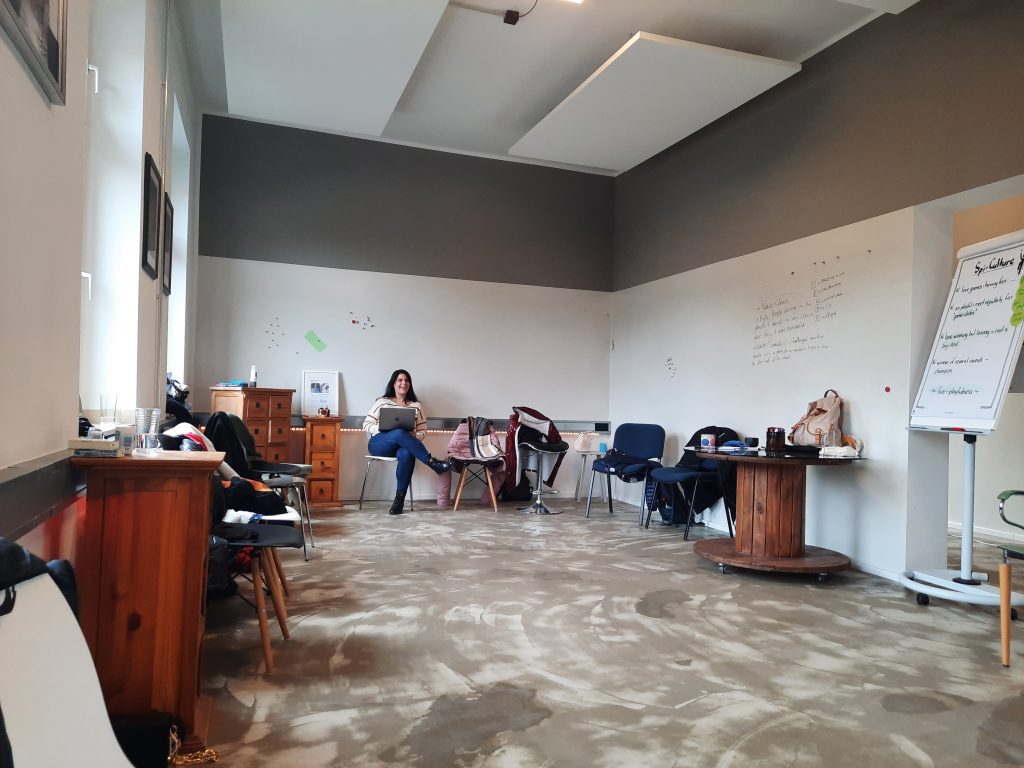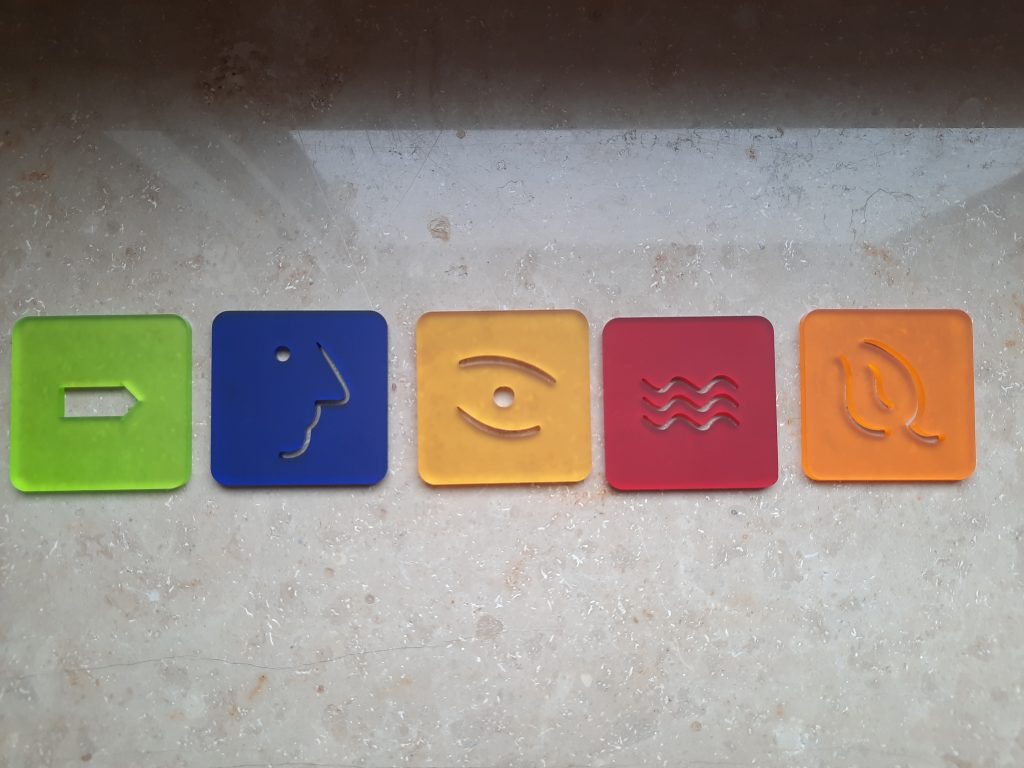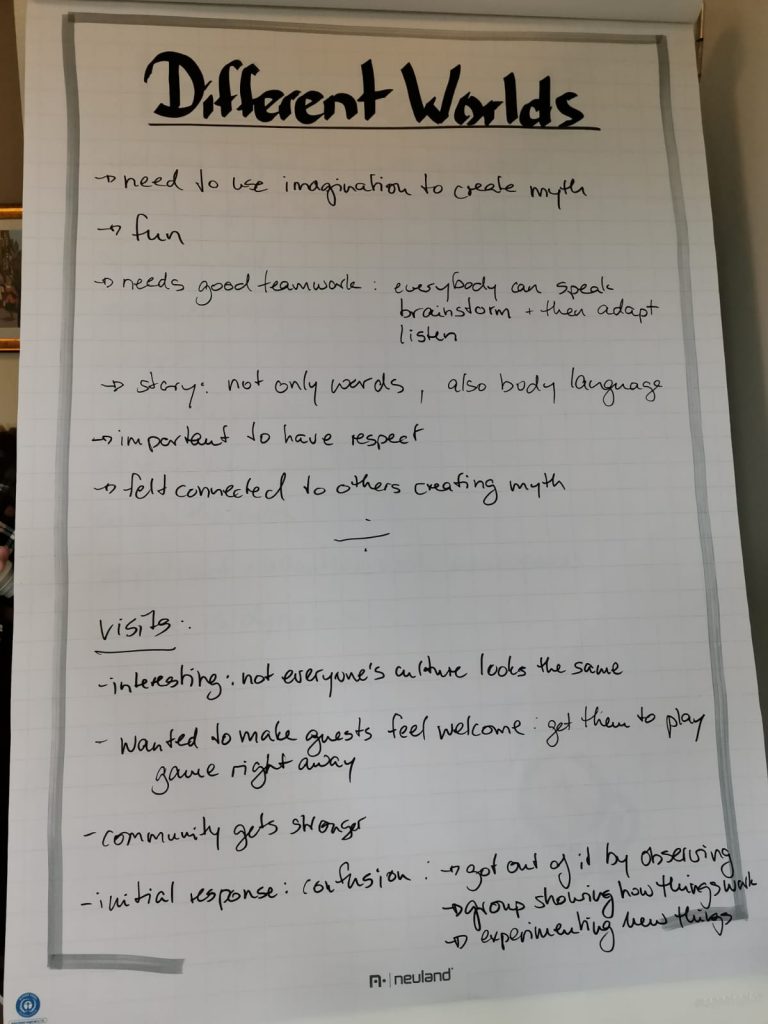Posted: 4th November 2022
Future Narratives: Why should I care?
Amerissa Giannouli reflects on the impact of Future Narratives.
By the time I became a part of this project, I knew that it was going to be a deep transformative process, at least for me. I already had the background and experience that was helping me look at the world from multiple, diverse and interrelated viewpoints. However, in every step of the process, I was able to uncover something that I had never thought before. I will try below to sketch some of the most important learning points I keep so far as an attempt to help the reader uncover, possibly transform, their own hidden narratives and assumptions of the world and its future. Now let me be clear. I am not a sociologist, a philosopher, a historian or any kind of person that could indicate deep knowledge on the matters presented in these few lines. I am, however, a person that finds it intellectually interesting to question things that matter and manage to influence our everyday actions and interactions. I also recognise that I might be in a more or less privileged position compared to other people. So please, accept what I write as my personal reflections on experiences that are highly influenced by this exact position, my environment, my relationships, my past and present, my future assumptions, my hopes and dreams.
By this very brief introduction of this piece, I believe I briefly indicated where this is going!
“Who are you?” A more than simple presentation question
I think people at some point in life have been asked to speak about themselves and answer this presumably easy question “Who are you?”.
For me, it has always been very difficult to present myself. My first reaction usually is to say something related to my country of origin, my profession but also my studies. When I was younger, I used to start with my name, my age and my personal interests, my favorite music, films, hobbies, things like that. I can assume that when I was little, I even spoke about my favorite colors, games and animals! Oh, how I miss these kinds of introductions!
During the project, this question went to a totally new level. We spoke about the power and attractiveness of presenting ourselves using storytelling techniques, i.e. share a bit about our past, where we are now and what we want for the future. We also spoke about the importance of including different elements beyond work and studies when we present ourselves. Our biographies should not be limited within typical CV lines, for example. Sometimes, we present ourselves to people like we are trying to get a job or something. This is not who we are! This is how the labor market might want us to be!

But what really touched me was the idea that as we share information about ourselves, we reveal and recognise our positionality. Positionality is a feminist epistemological principle that helps us locate the social and political context that creates our identities in terms of race, class, gender, sexuality, ability status, etc. It basically indicates to us and to those we speak to, the potential biases on how we see and understand the world. This idea helped me understand myself better and become more willing and open to actively listen to other people.
What was your favourite children’s book when you were young?
Another contribution to my intellectual development comes from children’s books!
Think about children’s books you used to engage with when you were young or the stories that you were told. Think about your favorite stories and events described, the themes, the characters, the worlds, even the emotions, the sounds and the smells that you experienced through these stories. The stories that you were told when you were young might have influenced you, the way you perceive the world but also the way you see yourselves in the world. Simple childhood stories but also social myths and narratives could limit or extend the potential of you being, experiencing, acting, thinking, understanding and ultimately, imagining how the world works or could work.
Try to respond to the following questions:
Which was the character you felt closer to? Which were their characteristics? How did they act and react throughout your favorite stories? What do you think your favorite children’s book says about you? Who are you in the book or story? Who are you in the world? What is your role in your community? Who and how you would like to be? Don’t these questions reveal things about yourselves, strengths and vulnerabilities, fears and expectations? Aren’t you curious to find if these stories from the past affected the way you are now? Or, do you think that your personality and interests are drawn to these particular stories? What if both happen? What if you are drawn to stories that you like but also you are affected by them?
Things do not evolve following one direction. Things do not happen in a linear or smooth way, either. This is a very simplistic way of thinking about life. Our paths cross and depend on each other in ways that we cannot possibly understand and untangle. And this is ok!
Challenge grand narratives: predictability and universality
Now, what if you could write your own stories? What if you could define all the elements a story has: the content, the events, the characters, the environment, everything. What if you could create a new world? Then, how do you relate with the character and their role in the story? Is this different compared to the stories you were being told when you were younger?

To create such a new story from scratch and a story that is not influenced by other stories requires lots of imagination and I would say experimentation. However, what I have personally experienced so far in the society I live and interact with is that, most of the time, we are scared of this experimentation, the search for the “unknown”. Technological innovations and trips to Mars do not count! They have become too mainstream in my opinion. I have the impression that sometimes, especially in the western societies, there are people that try to capture the unknown, explain it and if this is too difficult, they simplify it in order to own it and pretend to understand it.
A webinar we had with Prof. Dr. Michael Müller put these thoughts of mine into perspective. He spoke about how we are used to reactive stories where the protagonist is facing a crisis or a challenge and they either try to deal with this or adapt to it. There are also open stories, he explained, where the protagonist goes for a quest or they just dive into the unknown in order to change their undesirable reality. Open stories are scary, in a sense that we cannot predict the outcomes and this is too uncertain for us.
We feel more comfortable being able to predict the future. But predictions are based on today’s facts and reality perceptions. They are assumptions. They shouldn’t be recognised as universal truths leading to irreversible futures. Although, I do recognise that there are past tendencies reflected in the present and there is high probability to be also reflected in the future. This might be the case of hard science for example but not for soft science such as economics – my personal field of study.

Imagining a new future or story without challenging first hidden socially constructed myths and narratives is limited by default. We might romanticize it by saying “Let’s build our future!”. But how far can we dare to go to actually imagine and create it? How far are we willing to challenge the assumptions we make today for creating a new tomorrow?
Prof. Dr. Michael Müller surprised me by mentioning an idea about the end of history, referring to the moment when the Soviet Union fell and the Western Democracy seemingly prevailed. I am talking about the perception that capitalist markets and western democracy are the culmination of human evolution. Indeed, a huge part of our lives and relationships has been shaped following the narrative of individual utility maximization given limited resources. Such maximization can be realized through economic growth that is supposed to increase well-being. And since the resources are limited and ownership rights are not clearly defined, commodification is the key to deal with the ignorant and selfish human behavior of unlimited wants. These were taught at my school and my university!
Hence, it is impossible to ignore the big influence mainstream economics has in the way people might think, understand and experience the world. For me, this is one of the grand narratives that needs to be challenged and replaced with narratives of care, reciprocity and love. These were also taught at my school and were notions deeply rooted in feminist economics. However, mainstream discourse on success and power managed to suppress my memory of it.
What all these have to do with future studies and futures literacy? Futures literacy implies a welcoming attitude towards the unknown. The values and practices we choose to follow and reinforce can open new future possibilities which can also influence the present without being constrained by the past or the past presented as universal truth. But first, we need to be aware and conscious of who we are, what we can be, and what we can do, as individuals but also as part of a collective experience and process. Critical reflection and action are essential. Change happens only through challenging, deconstructing and constructing new narratives and stories. I don’t need single truths, certainty and predictability. I need hope. Here is why Future Narratives are so much needed…
